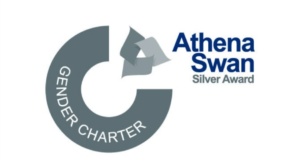Long-term case management key to tackling homelessness, award winning research suggests

credit: MART PRODUCTION
Long-term case management could hold the key to tackling the devastating homelessness crisis, award-winning research has suggested.
A team of researchers, including Professor Mark Kelson from the University of Exeter, has carried out an in-depth, systematic review and meta-analysis of the effectiveness and implementation of policies designed to intervene and help people experiencing homelessness.
The research gives a fascinating insight into how effective case management can be when trying to find a solution to find housing for those in need.
It found that individual case management help provided notable additional aid, particularly to those with higher level of support needs, such as health problems.
It also found that more “high intensity”, multicomponent help, such as that offered by Housing First, could also lead to greater overall and long-term benefits.
The research is published in the journal of Campbell Systematic reviews .
Professor Kelson, who is an expert in Statistics for Health at the University of Exeter said: “This piece of work was much larger than we originally envisaged. We screened over 3,000 scientific articles and ended up meta-analysing 64 studies. Our study is the most comprehensive and up-to-date evaluation of the effectiveness of case management for homelessness. We found clear benefit for case management for housing outcomes but perhaps surprisingly, little evidence of mental health benefits.”
Across the world, millions of people experience homelessness, which can potentially lead to poorer health and wellbeing outcomes, and a lower life expectancy.
It has been suggested that case management support may provide part of the solution. For the research, the team (from the University of Exeter and Cardiff University) produced a systematic review and meta-analysis to examine studies of case management programmes for people experiencing homelessness, in order to help identify components most likely to increase the chances of improvements in housing, health and wider outcomes.
The research team focused on several aspects within the findings to help identify the individual components of case management such as the period over which support is provided, the number of clients per case manager, and whether there are conditions attached to this support from the client’s point of view.
They also explored the effects of these interventions on homelessness and other outcomes such as mental health, substance use, physical heath, wellbeing and employment.
The review showed that any type of case management clearly improves homelessness outcomes for people with additional support needs, and this may be more effective for people who also have greater levels of additional need for support.
It also showed that support for up to three years leads to improvements in stable housing, while in-person meetings with the case manager also appear to be more beneficial that remote meetings.
Professor Kelson added: “Homelessness is an important problem and case management support may provide part of the solution. This review includes some guidance for current practice and policy and recommendations for future research, including an expansion of the research base outside North America.”
The significance of this comprehensive review has also been recognised through the receipt of a prestigious award.
The research has been bestowed with the Leonard E. Gibbs Award, given by the Campbell Social Welfare Coordinating Group (SWCG) Editorial Board.
The Leonard E. Gibbs Award is given to the authors of a completed Campbell systematic review that contributes to evidence-informed practice in social welfare.



